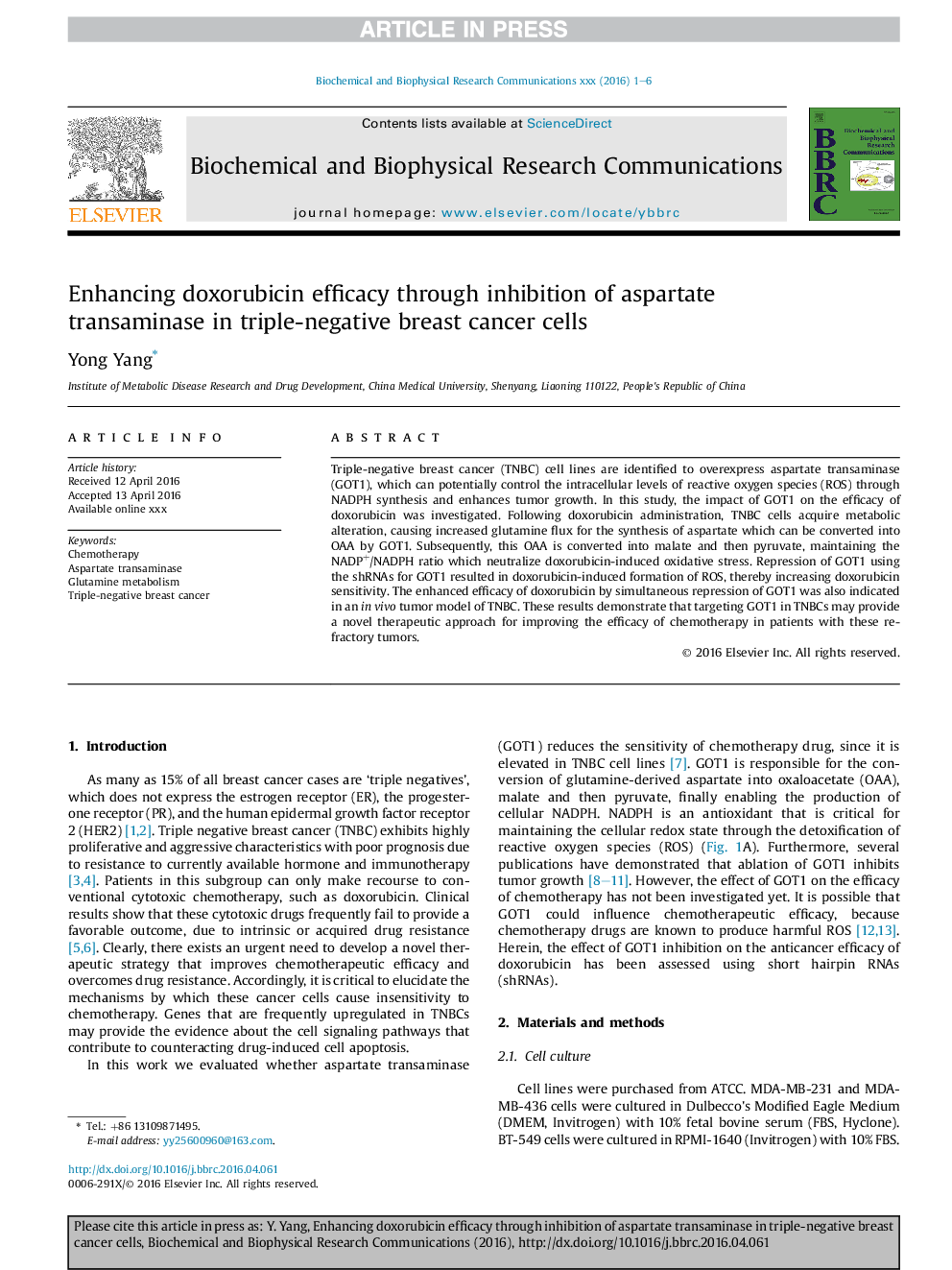| کد مقاله | کد نشریه | سال انتشار | مقاله انگلیسی | نسخه تمام متن |
|---|---|---|---|---|
| 10748519 | 1050274 | 2016 | 6 صفحه PDF | دانلود رایگان |
عنوان انگلیسی مقاله ISI
Enhancing doxorubicin efficacy through inhibition of aspartate transaminase in triple-negative breast cancer cells
ترجمه فارسی عنوان
افزایش اثربخشی دوکسوروبیسین از طریق مهار ترانس آمیناز آسپارتات در سلول های سرطانی سه گانه منفی
دانلود مقاله + سفارش ترجمه
دانلود مقاله ISI انگلیسی
رایگان برای ایرانیان
کلمات کلیدی
شیمی درمانی، ترانس آمیناز آسپارتات، متابولیسم گلوتامین، سرطان پستان سه گانه منفی،
موضوعات مرتبط
علوم زیستی و بیوفناوری
بیوشیمی، ژنتیک و زیست شناسی مولکولی
زیست شیمی
چکیده انگلیسی
Triple-negative breast cancer (TNBC) cell lines are identified to overexpress aspartate transaminase (GOT1), which can potentially control the intracellular levels of reactive oxygen species (ROS) through NADPH synthesis and enhances tumor growth. In this study, the impact of GOT1 on the efficacy of doxorubicin was investigated. Following doxorubicin administration, TNBC cells acquire metabolic alteration, causing increased glutamine flux for the synthesis of aspartate which can be converted into OAA by GOT1. Subsequently, this OAA is converted into malate and then pyruvate, maintaining the NADP+/NADPH ratio which neutralize doxorubicin-induced oxidative stress. Repression of GOT1 using the shRNAs for GOT1 resulted in doxorubicin-induced formation of ROS, thereby increasing doxorubicin sensitivity. The enhanced efficacy of doxorubicin by simultaneous repression of GOT1 was also indicated in an in vivo tumor model of TNBC. These results demonstrate that targeting GOT1 in TNBCs may provide a novel therapeutic approach for improving the efficacy of chemotherapy in patients with these refractory tumors.
ناشر
Database: Elsevier - ScienceDirect (ساینس دایرکت)
Journal: Biochemical and Biophysical Research Communications - Volume 473, Issue 4, 13 May 2016, Pages 1295-1300
Journal: Biochemical and Biophysical Research Communications - Volume 473, Issue 4, 13 May 2016, Pages 1295-1300
نویسندگان
Yong Yang,
